New International Commentary on the Old Testament (22 vols.)
PRODUCT HIGHLIGHTS:
- Verse-by-verse commentary
- In-depth discussion of textual and critical matters
- Introductions to each book’s authorship, date, purpose, structure, and theology
- Detailed bibliography
DESCRIPTION
This collection includes all of the volumes from The New International Commentary on the Old Testament to provide an exposition of Scripture that is thorough and abreast of modern scholarship, yet at the same time loyal to Scripture as the infallible Word of God. This conviction, shared by all contributors to The New International Commentary on the Old Testament, defines the goal of this ambitious series.
This decades-long project has become recognized by scholars, pastors, and serious Bible students as critical yet orthodox commentary marked by solid biblical scholarship within the evangelical Protestant tradition. The New International Commentary on the Old Testament serves as authoritative scriptural guides, bridging the cultural gap between today’s world and the Bible’s. Each volume in the NICOT aims to help us hear God’s word as clearly as possible.
Scholars, pastors, and serious Bible students will welcome the fresh light that this commentary series casts on ancient yet familiar biblical texts. The contributors apply their proven scholarly expertise and wide experience as teachers to illumine our understanding of the Old Testament. Gifted writers, they present the results of the best recent research in an interesting, readable, and thought-provoking manner.
Each commentary opens with an introduction to the biblical book in question, looking especially at questions concerning its background, authorship, date, purpose, structure, and theology. A select bibliography also points readers to resources for their own study. The author’s own translation from the original Hebrew and Greek texts forms the basis of the commentary proper. Verse-by-verse comments nicely balance the in-depth discussions of technical matters—such as textual criticism and critical problems—with exposition of the biblical writer’s theology and its implications for the life of faith today.
….
New International Commentary on the New Testament (18 vols.)
PRODUCT HIGHLIGHTS:
- Verse-by-verse commentary
- In-depth discussion of textual and critical matters
- Introductions to each book’s authorship, date, purpose, structure, and theology
- Detailed bibliography
DESCRIPTION
This collection includes all of the volumes from The New International Commentary on the New Testament to provide an exposition of Scripture that is thorough and abreast of modern scholarship, yet at the same time loyal to Scripture as the infallible Word of God. This conviction is shared by all contributors to The New International Commentary on the New Testament and defines the goal of this ambitious series.
This decades-long project has become recognized by scholars, pastors, and serious Bible students as critical yet orthodox commentary marked by solid biblical scholarship within the evangelical Protestant tradition. The New International Commentary on the New Testament serves as an authoritative guide to the text of Scripture, bridging the cultural gap between today’s world and the world of the Bible. Each volume in the NICNT aims to help us hear God’s word as clearly as possible.
Scholars, pastors, and serious Bible students will welcome the fresh light that this commentary series casts on ancient yet familiar biblical texts. The contributors apply their proven scholarly expertise and wide experience as teachers to illumine our understanding of the New Testament. As gifted writers, they present the results of the best recent research in an interesting, readable, and thought-provoking manner.
Each commentary opens with an introduction to the biblical book, looking especially at questions concerning its background, authorship, date, purpose, structure, and theology. A select bibliography also points readers to resources for their own study. The author’s own translation from the original Hebrew and Greek texts forms the basis of the commentary proper. Verse-by-verse comments nicely balance the in-depth discussions of technical matters—such as textual criticism and critical problems—with exposition of the biblical writer’s theology and its implications for the life of faith today.
….
Theological Dictionary of the Old Testament, Volumes 1 – 17
Series Editors: G. Johannes Botterweck, Helmer Ringgren, Heinz-Josef Fabry
This multivolume work is still proving to be as fundamental to Old Testament studies as its companion set, the Kittel-Friedrich Theological Dictionary of the New Testament, has been to New Testament studies.
Beginning with ‘ābh (‘āb), “father,” and continuing through the alphabet, the TDOT volumes present in-depth discussions of the key Hebrew and Aramaic words in the Old Testament. Leading scholars of various religious traditions (including Roman Catholic, Lutheran, Reformed, Anglican, Greek Orthodox, and Jewish) and from many parts of the world (Denmark, France, Germany, Great Britain, Greece, Israel, Italy, the Netherlands, Norway, Sweden, Switzerland, and the United States) have been carefully selected for each article by editors Botterweck, Ringgren, and Fabry and their consultants, George W. Anderson, Henri Cazelles, David Noel Freedman, Shemaryahu Talmon, and Gerhard Wallis.
The intention of the writers is to concentrate on meaning, starting from the more general, everyday senses and building to an understanding of theologically significant concepts. To avoid artificially restricting the focus of the articles, TDOT considers under each keyword the larger groups of words that are related linguistically or semantically. The lexical work includes detailed surveys of a word’s occurrences, not only in biblical material but also in other ancient Near Eastern writings. Sumerian, Akkadian, Egyptian, Ethiopic, Ugaritic, and Northwest Semitic sources are surveyed, among others, as well as the Qumran texts and the Septuagint; and in cultures where no cognate word exists, the authors often consider cognate ideas.
TDOT’s emphasis, though, is on Hebrew terminology and on biblical usage. The contributors employ philology as well as form-critical and traditio-historical methods, with the aim of understanding the religious statements in the Old Testament. Extensive bibliographical information adds to the value of this reference work.
This English edition attempts to serve the needs of Old Testament students without the linguistic background of more advanced scholars; it does so, however, without sacrificing the needs of the latter. Ancient scripts (Hebrew, Greek, etc.) are regularly transliterated in a readable way, and meanings of foreign words are given in many cases where the meanings might be obvious to advanced scholars. Where the Hebrew text versification differs from that of English Bibles, the English verse appears in parentheses. Such features will help all earnest students of the Bible to avail themselves of the manifold theological insights contained in this monumental work.
Note: Print edition is 17 volumes.
Print pages/price per volume on 12/11/2021 from Eerdmans.com
Volume I: 501pgs, $66.50
Volume II: 508pgs, $75.00
Volume III: 483pgs, $66.50
Volume IV: 513pgs, $75.00
Volume V: 543pgs, $76.50
Volume VI: 513pgs, $76.50
Volume VII: 578pgs, $66.50
Volume VIII: 584pgs, $76.50
Volume IX: 589pgs, $76.50
Volume X: 616pgs, $76.50
Volume XI: 639pgs, $66.50
Volume XII: 636pgs, $67.50
Volume XIII: 677pgs, $79.50
Volume XIV: 726pgs, $84.50
Volume XV: 821pgs, $68.50
Volume XVI: 932pgs, $75.00
Volume XVII: 845pgs, $75.00
Total print pages: 10,704
Total print price: $1,248.50
theWord Features
- Verse popups
- Fully searchable text
- Footnotes
- Easy navigation of topics via topics tree display.
- Hebrew Lemmas: אָב
- Aramaic Lemmas: שׂגי
- Strong’s Numbers: H1
- Special Text Colors
- Normal: Text
- Hyperlink: lit | Luke 20:21
- Page Number: [v1 pg21>
- Latin: septuaginta
- Transliteration: môrāʾ
- Hebrew: אָב
- Aramaic: שׂגי
- Greek: σαμβύκη
Theological Dictionary of the New Testament TDNT (10 vols.)
25% off on this product lowest price possible is $150. (Publisher requirement)
Please see the excellent software & book review by DoctorDaveT below.
This monumental reference work, complete in ten volumes, is the authorized and unabridged translation of the famous Theologisches Wörterbuch zum Neuen Testament, known commonly as “Kittel” and considered by many scholars to be the best New Testament Dictionary ever compiled. Mediating between ordinary lexicography and the specific task of exposition, TDNT treats more than 2,300 theologically significant New Testament words, including the more important prepositions and numbers as well as many proper names from the Old Testament. Presenting the words in the order of the Greek alphabet, TDNT typically discusses the following for each word: its secular Greek background, its role in the Old Testament, its use in extra biblical Jewish literature, and its varied uses in the New Testament. Substantial bibliographies and footnotes supplement the articles. It is designed for the intermediate and advanced Greek student. Each significant Greek word of the New Testament is comprehensively presented and takes account of its:
- Greek background
- role in the Old Testament (in the Hebrew and the Septuagint)
- use by Philo, Josephus, and in the rabbinical literature
- uses in the New Testament and its various genres
- appearances (where appropriate) in the Apostolic Fathers
More than 100 distinguished scholars contributed to the work, including specialists in Old Testament, Septuagint, Hellenistic, Semitic and Rabbinic studies. Extensive bibliographies and detailed footnoting supplement the articles.
Overview of the resource inside theWord
theWord Features:
- Verse popups
- Abbreviation popups
- Fully searchable text
- Easy navigation of topics via topics tree display.
- Greek Lemmas
- Strong’s Numbers in topic tree
- Special Text Colors
- Normal: Text
- Hyperlink: Grundmann | 2 Tm. 3:1 ff. | 1 | †
- Volume & Page Number: v1 p162
- Latin: supra
- Transliteration: qādēs̆: ṭāhēr
- Greek: σωμάτων
- Hebrew: מִשְׁפָּט
Note: This is the unabridged version which is 10 volumes in print.
About the Author
Wuest Word Studies in the Greek New Testament
These studies and translations of the Greek New Testament are simplified commentaries on the Greek text for the Bible student who is not conversant with the Greek language. The three-volume set includes commentaries on Mark, Romans, Galatians, Ephesians Colossians, Philippians, Hebrews, 1 Timothy, 2 Timothy, Titus, 1 Peter, 2 Peter, 1 John, 2 John, 3 John and Jude; graphic elucidations of selected passages, words, and phrases; and devotional studies on the teachings of Jesus and the apostles.
theWord Features
- Verse popups
- Fully searchable text
- Footnotes
- Easy navigation of topics via topics tree display.
- Special Text Colors
- Normal: Text
- Hyperlink: Luke 20:21
- Page Number: [pg 21>
- Greek: χρησις
- Hebrew: מֶ֫לֶךְ
- Transliterated Greek & Hebrew: euaggelion
The New International Greek Testament Commentary: The Gospel of Matthew
(These are resources that are being developed. There is no release date. Pricing is subject to change.)
Having devoted the past ten years of his life to research for this major new work, John Nolland gives us a commentary on the Gospel of Matthew that engages with a notable range of Matthean scholarship and offers fresh interpretations of the dominant Gospel in the history of the church.
Without neglecting the Gospel’s sources or historical background, Nolland places his central focus on the content and method of Matthew’s story. His work explores Matthew’s narrative technique and the inner logic of the unfolding text, giving full weight to the Jewish character of the book and its differences from Mark’s presentation of parallel material. While finding it unlikely that the apostle Matthew himself composed the book, Nolland does argue that Matthew’s Gospel reflects the historical ministry of Jesus with considerable accuracy, and he brings to the table new evidence for an early date of composition.
Including accurate translations based on the latest Greek text, detailed verse-by-verse comments, thorough bibliographies for each section, and an array of insightful critical approaches, Nolland’s Gospel of Matthew will stimulate students, preachers, and scholars seeking to understand more fully Matthew’s presentation of the gospel narrative.
The New International Greek Testament Commentary: The Book of Revelation
(These are resources that are being developed. There is no release date. Pricing is subject to change.)
The New International Greek Testament Commentary: The First Epistle to the Corinthians
(These are resources that are being developed. There is no release date. Pricing is subject to change.)
Series: The New International Greek Testament Commentary (NIGTC)
This superb volume in the New International Greek Testament Commentary series provides the most detailed, definitive, and distinctive commentary on 1 Corinthians available in English to date.
One of the world’s most respected Christian theologians, Anthony Thiselton here provides in- depth discussion of the language of 1 Corinthians, presents his own careful translation of the Greek, traces the main issues of interpretation from the church fathers to the present, and highlights topics of theological, ethical, and sociohistorical interest today, including ethics and “rights,” marriage, divorce and remarriage, “headship,” gender, prophecy, and many others.
No other commentary on 1 Corinthians embodies the wealth and depth of detail presented in Thiselton’s work, which takes account of nearly all scholarly research on 1 Corinthians and incorporates substantial bibliographies throughout. In his commentary Thiselton indeed addresses virtually every question that thoughtful, serious readers — scholars, students, pastors, teachers — may wish to ask of or about the text of 1 Corinthians. His work truly offers a fresh, comprehensive, and original contribution to our understanding of this major epistle and its contemporary relevance.
The New International Greek Testament Commentary: The Second Epistle to the Corinthians
(These are resources that are being developed. There is no release date. Pricing is subject to change.)
Series: The New International Greek Testament Commentary (NIGTC)
The reputation of the NIGTC series is so outstanding that the appearance of each new volume is noteworthy. This book on 2 Corinthians is no exception. Master New Testament exegete Murray J. Harris has produced a superb commentary that analyzes the Greek text verse by verse against the backdrop of Paul’s tumultuous relations with his converts at Corinth.
Believing that Scripture cannot be understood theologically unless it has first been understood grammatically, Harris provides a careful, thoroughgoing reading of the text of 2 Corinthians. He gives special attention to matters of translation, making regular references not only to the standard modern English translations but also to influential older versions such as The Twentieth Century New Testament and those by Weymouth, Moffatt, and Goodspeed. His close attention to matters of textual criticism and grammar leads to discussions of the theology of 2 Corinthians that show the relevance of Paul’s teaching to Christian living and church ministry.
Other notable features of the book include a comprehensive introduction in which all the relevant literary and historical issues are discussed, an expanded paraphrase of the letter that conveniently shows Harris’s decisions on exegetical issues and indicates the flow of Paul’s argument, a chronology of the relations of Paul, Timothy, and Titus with the Corinthian church, and an excursus on Paul’s “affliction in Asia” (1:8-11) and its influence on his outlook and theology.
New International Commentary: The Book of Ezekiel (2 vols.)
PRODUCT HIGHLIGHTS:
- Verse-by-verse commentary
- In-depth discussion of textual and critical matters
- Introductions to each book’s authorship, date, purpose, structure, and theology
- Detailed bibliography
DESCRIPTION
This collection includes the two volumes of Daniel Block’s study of Ezekiel from The New International Commentary on the Old Testament
Volume 1
To many modern readers the prophecies of Ezekiel are a mystery. This commentary by Daniel Block—Part I of his two-volume study of the whole book of Ezekiel—seeks to answer the questions that contemporary readers bring to the text by examining the language, the message, and the methods of this obscure and often misunderstood Hebrew prophet. The result of twelve years of study, this volume provides an excellent discussion of the background of Ezekiel and offers a verse-by-verse exposition of each literary/prophetic unit in Ezekiel 1–24 that not only makes clear the prophet’s message to his original readers but also shows that Ezekiel’s ancient wisdom and vision are still very much needed by the church in the twenty-first century.
Volume 2
To many modern readers the prophecies of Ezekiel are a mystery. This commentary by Daniel Block—which completes his two-volume study of the whole book of Ezekiel—seeks to answer the questions that contemporary readers bring to the text by examining the language, the message, and the methods of this obscure and often misunderstood Hebrew prophet. The result of twelve years of study, this volume, like the one on chapters 1–24, provides an excellent discussion of the background of Ezekiel and offers a verse-by-verse exposition of each literary/prophetic unit in Ezekiel 25–48 that not only makes clear the prophet’s message to his original readers but also shows that Ezekiel’s ancient wisdom and vision are still very much needed by the church in the twenty-first century.
….
New International Commentary: The Book of Isaiah (2 vols.)
PRODUCT HIGHLIGHTS:
- Verse-by-verse commentary
- In-depth discussion of textual and critical matters
- Introductions to each book’s authorship, date, purpose, structure, and theology
- Detailed bibliography
DESCRIPTION
This collection includes the two volumes of John N. Oswalt’s study of Isaiah from The New International Commentary on the Old Testament
Volume 1
The first of John N. Oswalt’s two-part study of the book of Isaiah for the NICOT series, this commentary on chapters 1–39 combines theological acumen, literary sensitivity, philological expertise, and historical knowledge to present a faithful and accurate reading of one of the Old Testament’s most important books.
In the introduction to this work, Oswalt considers Isaiah’s background, unity of composition, date and authorship, canonicity, Hebrew text, theology, and problems of interpretation, and he offers a select bibliography for further research. Oswalt also provides substantial discussions of several issues crucial to the book of Isaiah. He notes, for example, that scholars often divide Isaiah into three divisions, with chapters 1–39 addressing Isaiah’s contemporaries in the eighth century b.c., chapters 40–55 presupposing the exile of the sixth century, and chapters 56–66 presupposing the eventual return from exile. While taking this scholarship into account Oswalt defends the unity of the prophetic book and argues convincingly that the whole book can be attributed to the Isaiah of the eighth century.
The commentary proper, based on Oswalt’s own translation of the Hebrew text, provides pastors, scholars, and students with a lucid interpretation of the book of Isaiah in its ancient context as well as an exposition of its message for today.
Volume 2
The second of John N. Oswalt’s two-part study of the book of Isaiah for the NICOT series, this commentary provides exegetical and theological exposition on the latter twenty-seven chapters of Isaiah for scholars, pastors, and students who seek to know the perennial meaning of the text in contemporary terms.
Though Oswalt’s main introduction to Isaiah is found in his commentary on chapters 1–39, this second volume opens with an important discussion of scholarly debate over the unity/diversity of Isaiah. In this work Oswalt makes stronger his case for reading the entire book of Isaiah as written by a single author—a position not common in other recent commentaries. Oswalt’s work stands alone, then, as an attempt to take seriously Israel’s historical situation at the time chapters 40–66 were composed while also seeking to understand how these chapters function as a part of Isaiah’s total vision written in the late 700s or early 600s b.c.
Assuming the single authorship of Isaiah, the verse-by-verse commentary aims to interpret chapters 40–66 in light of the book as a whole. While not neglecting issues of historical criticism or form criticism, the commentary focuses mainly on the theological meaning of the text as indicated especially by the literary structure. Building on his earlier argument that the central theme of Isaiah is servanthood, Oswalt keeps readers focused on the character of Israel’s sovereign Redeemer God, on the blind servant Israel, and on the ultimate work of the Suffering Servant in whom the world can find its Savior.
….
New International Commentary: The Book of Proverbs (2 vols.)
PRODUCT HIGHLIGHTS:
- Verse-by-verse commentary
- In-depth discussion of textual and critical matters
- Introductions to each book’s authorship, date, purpose, structure, and theology
- Detailed bibliography
DESCRIPTION
This collection includes the two volumes of Bruce Waltke’s study of Proverbs from The New International Commentary on the Old Testament
Volume 1
Over twenty-five years in the making, this much-anticipated commentary promises to be the standard study of Proverbs for years to come. Written by eminent Old Testament scholar Bruce Waltke, this two-volume commentary is unquestionably the most comprehensive work on Proverbs available.
Grounded in the literary criticism that has so strengthened biblical interpretation, Waltke’s commentary on Proverbs demonstrates the profound, ongoing relevance of this Old Testament book for Christian faith and life. A thorough introduction addresses such issues as text and versions, structure, authorship, and theology. The detailed commentary itself explains and elucidates Proverbs as “theological literature.” Waltke’s highly readable style—evident even in his original translation of the Hebrew text—makes his scholarly work accessible to teachers, pastors, Bible students, and general readers alike.
Volume 2
For the modern mind, the book’s cultural setting seems far removed from the twenty-first century. Proverbs puts a high priority on tradition and age, while the modern mind prizes change and youth. For Christians, Proverbs seems irrelevant. For the translator, Proverbs defies translations.
In the second part of his two-volume commentary, Waltke confronts these exegetical and interpretive challenges head on. This historico-grammatical commentary on Proverbs uncovers the profound philosophical and theological insights of this ancient book. Waltke helps readers understand the poetics used in its composition, and challenges modern prejudices toward the book.
….
The New International Greek Testament Commentary: The Epistle to the Hebrews
(These are resources that are being developed. There is no release date. Pricing is subject to change.)
The New International Greek Testament Commentary: The Gospel of Luke
(These are resources that are being developed. There is no release date. Pricing is subject to change.)
The Gospel of Luke was written, says its author, as an historical account of the ministry of Jesus. Not only would it serve as the basis for a sound faith on the part of professing Christians, but it would also claim a place for Christianity in history. Christ’s ministry, as Luke shows, is realized prophecy; it is that time during which God’s promise of salvation was fulfilled. His teachings, healing, and acts of compassion are all part of the good news. In Luke’s Gospel, Christ’s message of salvation is directed to the weak, poor, and needy, with an emphasis on the importance of self-denial and of whole-hearted discipleship. Thus, while Luke is the most conscious historian of the Gospel writers, his history is a vehicle of theological interpretation in which the significance of Jesus is expressed.
In this commentary I. Howard Marshall calls attention to the theological message of Luke the Evangelist. His primary purpose is to exegete the text as it was written by Luke, so that the distinctiveness of Luke’s Gospel may be seen.
Basing his commentary on the third edition of The Greek New Testament, Dr. Marshall also refers to many variant readings which are significant in this study. He provides fairly full information on the meanings of the Greek words used by Luke and shows which words and constructions occur frequently and are therefore characteristic of his style. It is by this meticulous analysis of the Greek that Luke’s theological intentions can be objectively determined.
The New International Greek Testament Commentary: The Gospel of Mark
(These are resources that are being developed. There is no release date. Pricing is subject to change.)
Drawing on many years of Marcan studies, world-class scholar R. T. France has produced an exegetical commentary on the Greek text of Mark that does what the best of recent Greek commentaries have done but in France’s own inimitable, reader-friendly way.
This work is a commentary on Mark itself, not a commentary on commentaries of Mark. It deals immediately and directly with matters that France himself regards as important. Working from his own translation of the Greek text and culling from helpful research into the world of first-century Palestine, France provides an extensive introduction to Mark’s Gospel, followed by insightful section and verse commentary.
France sees the structure of Mark’s Gospel as an effective “drama in three acts.” Act 1 takes up Jesus’ public ministry in Galilee. Act 2 covers Jesus’ journey to Jerusalem with his disciples. Act 3 focuses on Jesus’ public ministry in Jerusalem, including his confrontation with the Jewish leaders, his explanatory discourse on the future, and his passion, death, and resurrection. France carefully unpacks for modern readers the two central themes of this powerful narrative of Jesus’ life — the nature of Christ and the role of discipleship.
Supported by careful argumentation and impressive in its sensitivity to Mark’s structure, context, and use of the Old Testament, France’s study of the second Gospel is without peer.
New International Commentary: The Book of Genesis (2 vols.)
PRODUCT HIGHLIGHTS:
- Verse-by-verse commentary
- In-depth discussion of textual and critical matters
- Introductions to each book’s authorship, date, purpose, structure, and theology
- Detailed bibliography
DESCRIPTION
This collection includes the two volumes of Victor P. Hamilton’s study of Genesis from The New International Commentary on the Old Testament
Volume 1
The first of Victor P. Hamilton’s two-volume study of Genesis in the NICOT series, this commentary contributes a solid, thorough explication of the wealth and depth of material embedded in Scripture’s foundational book.
Hamilton’s substantive introduction—which serves both this volume and the one covering chapters 18–50—discusses the structure of Genesis and its composition, its theology, the problems involved in its interpretation, its canonicity, and the Hebrew text itself. The commentary proper, based on Hamilton’s own translation, evidences his extensive knowledge of the ancient Near East and of contemporary scholarship, including literary, form, and text criticism. Siding with the arguments in favor of the literary and theological unity of the Genesis text, Hamilton stresses the main theme running throughout the book—God’s gracious promise of blessing and reconciliation in the face of evil and sin.
A unique feature of this book is Hamilton’s emphasis on the reading of Genesis by the New Testament community. Following his commentary on each section of Genesis, he discusses where and how the New Testament appropriated material from that section and incorporated it into the message of the New Covenant.
Volume 2
The second of Victor P. Hamilton’s two-volume study of Genesis for the NICOT series, this prodigious and scholarly work provides linguistic, literary, and theological commentary on Genesis 18–50. Beginning with Abraham’s reception of the three visitors and his intercession before Yahweh on behalf of Sodom and Gomorrah (Gen. 18) and continuing through the end of the Joseph story (Gen. 50), the overarching theme of Hamilton’s commentary is Yahweh’s faithfulness to his promised word and his covenant commitments to those whom he has chosen to receive that promised word.
Special features of this commentary include its serious attention to important matters of biblical translation from the Hebrew language into English, copious footnotes that direct readers to further and more extensive sources of information, and frequent references to the New Testament writers’ reading of Genesis. Hamilton’s work will greatly benefit scholars, seminarians, and pastors who seek solid exegesis of the Bible’s foundational book.
….
The New International Greek Testament Commentary: The Pastoral Epistles
(These are resources that are being developed. There is no release date. Pricing is subject to change.)
This is a thorough, full- scale English commentary on the Greek text of 1 and 2 Timothy and Titus. While author George W. Knight gives careful attention to the comments of previous interpreters of the text, both ancient and modern, his emphasis is on exegesis of the Greek text itself and on the flow of the argument in each of these three epistles.
Besides providing a detailed look at the meanings and interrelationships of the Greek words as they appear in each context, Knight’s commentary includes an introduction that treats at length the question of authorship (he argues for Pauline authorship and proposes, on the basis of stylistic features, that Luke might have been the amanuensis for the Pastoral Epistles), the historical background of these letters, and the personalities and circumstances of the recipients.
Knight also provides two special excursuses: the first gathers together the information in the Pastorals and elsewhere in the New Testament on early church offices and leaders; the other excursus examines the motivations for conduct in Titus 2:1-10 with a view to their applicability to present-day situations.



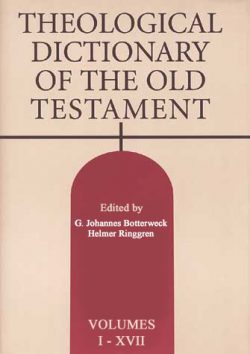
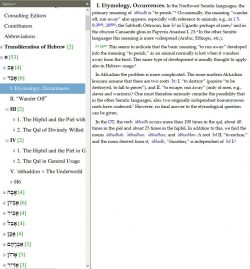
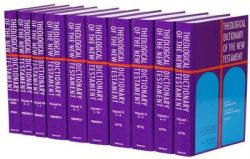
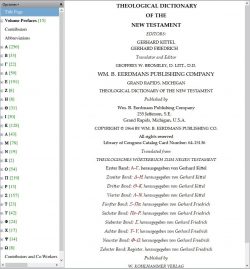
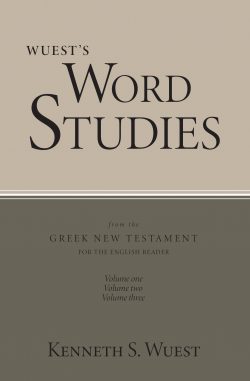
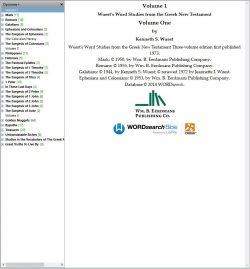
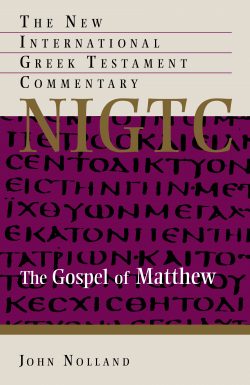
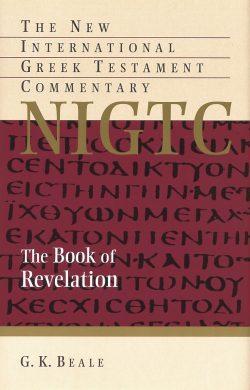
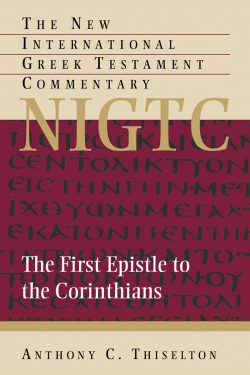
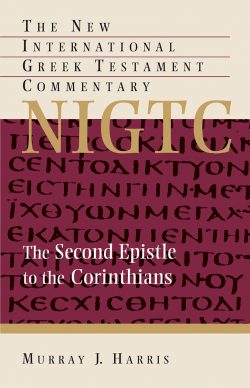
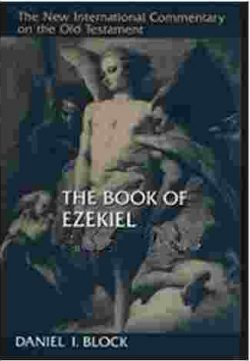

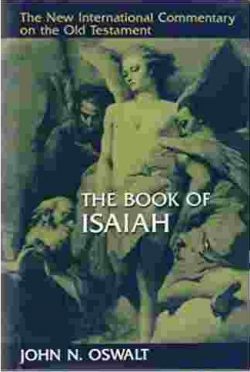
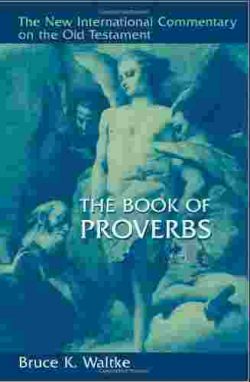
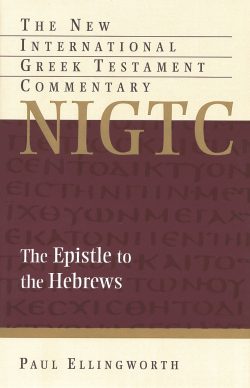
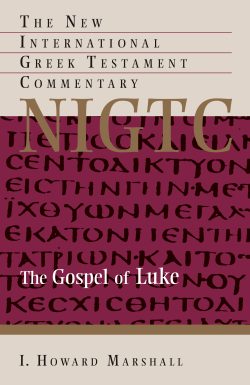
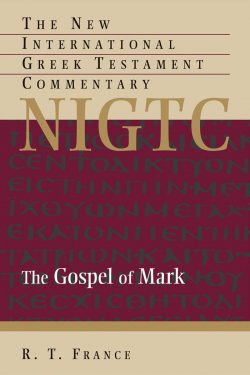
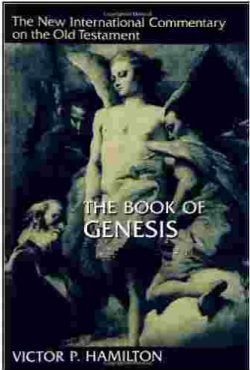
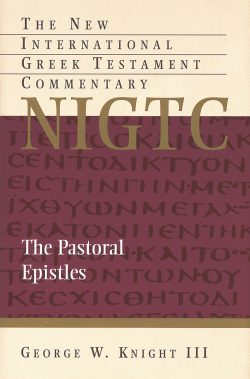
New International Commentary on the Old and New Testament (40 vols.)
PRODUCT HIGHLIGHTS:
DESCRIPTION
This massive collection combines The New International Commentary on the Old Testament and The New International Commentary on the New Testament to provide an exposition of Scripture that is thorough and abreast of modern scholarship, yet at the same time loyal to Scripture as the infallible Word of God. This conviction, shared by all contributors to The New International Commentary on the Old Testament and The New International Commentary on the New Testament, and defines the goal of this ambitious series of commentaries.
This decades-long project has become recognized by scholars, pastors, and serious Bible students as critical yet orthodox commentary marked by solid biblical scholarship within the evangelical Protestant tradition. The New International Commentary on the Old Testament and The New International Commentary on the New Testament serve as authoritative scriptural guides, bridging the cultural gap between today’s world and the Bible’s. Each volume in the NICOT and the NICNT aims to help us hear God’s word as clearly as possible.
Scholars, pastors, and serious Bible students will welcome the fresh light that this commentary series casts on ancient yet familiar biblical texts. The contributors apply their proven scholarly expertise and wide experience as teachers to illumine our understanding of the Old and New Testaments. Gifted writers, they present the results of the best recent research in an interesting, readable, and thought-provoking manner.
Each commentary opens with an introduction to the biblical book in question, looking especially at questions concerning its background, authorship, date, purpose, structure, and theology. A select bibliography also points readers to resources for their own study. The author’s own translation from the original Hebrew and Greek texts forms the basis of the commentary proper. Verse-by-verse comments nicely balance the in-depth discussions of technical matters—such as textual criticism and critical problems—with exposition of the biblical writer’s theology and its implications for the life of faith today.
….